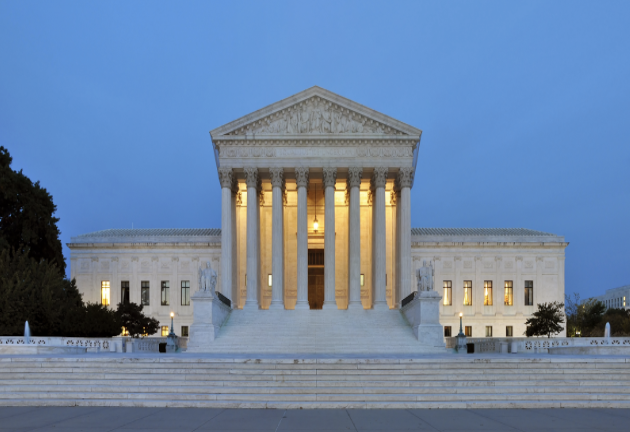Texas v. Biden
Conservative states argue against President Biden’s immigration policies.
The United States Supreme Court Building in Washington D.C.
December 13, 2022
Right wing states challenge the Biden administration’s plans to focus on immigrants from certain countries over others.
Texas v. Biden began in April 2021 when Texas and Louisiana sued the Biden administration for changes made to immigration policies after the secretary for the Department of Homeland Security, Alegandro Mayorkas, created a memorandum to target undocumented immigrants who pose a threat to public safety, according to The Texas Tribune.
For context, in January 2019, the Department of Homeland Security began implementing Migrant Protection Protocols (MPP), in which certain non-Mexican nationals who arrived from Mexico would be deported back to Mexico.
Then, the persons would await for their removal proceedings under section 1229a in the Immigration and Nationality Act (INA).
The MPP incorporates its policies with the INA, being that its policies apply to those who arrive to the United States “from a foreign territory contiguous to the United States,” therefore in these circumstances the Secretary of Homeland Security would have authority to “return the alien to that territory pending a proceeding under section 1229a.” 8 U. S. C. §1225.
This program was suspended by the Biden administration, and on June 1, 2021 when the Secretary of Homeland Security issued a memorandum to terminate prior policies.
This change was later challenged by Texas and Missouri, as it seemed the memorandum went against INA and Administrative Procedure Act (APA). Later, the District Court allowed judgment for respondents to begin.
The court argued that completely suspending MPP would violate the INA, seeing that under section 1225 there are two options provided by the government in regards to illegal migration. One being “mandatory detention pursuant to section 1225(b)(2)(A) or contiguous-territory return pursuant to section 1225(b)(2)(C)” according to the court Syllabus.
The court reasoned that the government did not meet the detention obligations under section 1225 – thus this would be classified as a systemic violation of the APA.
Beyond bringing the case forward, Conservative states Texas and Louisiana have transported undocumented immigrants to Democratic-led states to raise awarness about immigration policies.
On Nov. 29, the justices re-evaluated the first major immigration case, after four months of President Joe Biden’s agenda to prioritize certain immigrants for deportation.
Those who pose a threat to national security or public safety would be a target of enforcement under Biden’s administration, which differs from former President Donald Trump’s tactics.
On the other hand, immigration advocates acknowledge that Texas and Louisiana believe that Biden’s immigration policies would increase spending on law enforcement, healthcare, and education. However, advocates argue that with a rising population, these prices would inevitably increase.
Even so, executive director of the National Immigration Project, Sirine Shebaya, mentioned in a USA Today article that “they are actively targeting this group and breaking it apart from the rest of the population, even though federal and state law require that all residents of a state be treated similarly.” Shebaya group has co-authored a case brief regarding Biden’s position.
Louisiana Solicitor General Liz Murrill responded to this argument by stating “any argument that our position on illegal immigration is somehow in conflict with a policy of encouraging growth in our states is falsely equating two things that are wildly dissimilar.”
Overall, Texas and Louisiana argued before the Supreme Court this year in their brief that they are simply trying to protect the “health and well-being of their residents by protecting them from criminal aliens that Congress has ordered detained.”
Biden’s policies of enforcement against those who pose a threat is not a strong enough policy for some states. Nevertheless, a 5-4 majority declined Biden’s request, omitting his abilities to follow through with his policies.
The Associate Justices to dissent the ruling include: Samuel Alito, Neil Gorsuch, Clarence Thomas, and Amy Barrett. While Associate Justice Brett Kavanaugh and Chief Justice John Roberts sided with the lower court’s ruling because Roberts noted that opposing the administration would impose “a significant burden upon the executive’s ability to conduct diplomatic relations with Mexico,” according to a USA Today article.
Official decisions are projected to be announced next year.



